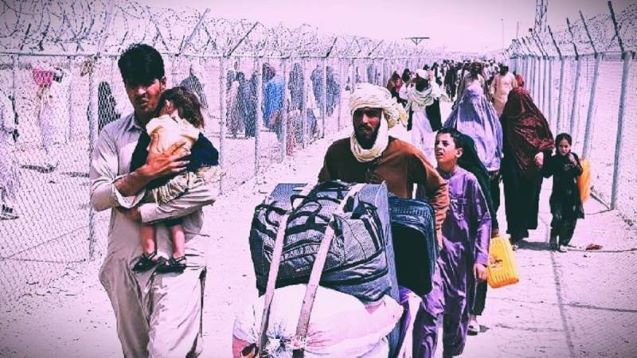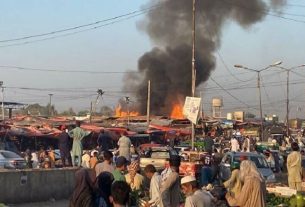With Pakistan reeling from cross-border attacks and a day where at least four incidents saw the loss of over 60 lives, Pakistan has decided it has had enough. After hinting at launching a large-scale operation against terrorists and their facilitators, Islamabad has decided to expel illegal immigrants.
“Pakistan is considered to have a soft stance towards illegal immigrants. This misconception will soon be removed,” Caretaker Federal Interior Minister Sarfraz Bugti told The Friday Times in an exclusive interview on Saturday.
Bugti said it is now time to adopt a ‘hard stance’ to protect the country from terrorism, smuggling, and other issues. In this regard, he has demonstrated some of that ‘hard stance’ recently, whether it is in the form of making a statement on men wanted by the law to face the courts or warning terrorists that the civil and military institutions were ready to launch headfirst in an operation to eliminate the resurfacing menace.
Pakistan has already launched a crackdown against illegal migrants, particularly Afghan nationals.
Bugti, however, dispelled the notion that the crackdown targeted Afghans. Rather, he said that action will be taken against all illegal immigrants.
“Next month, the government, through a press conference, will ask these illegal immigrants to return home, and a cut-off date will be given to them,” the caretaker minister explained.
Bugti further dispelled the impression that the crackdown and other extraordinary measures were precipitated by the Chitral incident – where scores of militants allied with the Tehreek-e-Taliban Pakistan (TTP) were repulsed by the military thanks to good intelligence work.
This crackdown was already in the pipeline, he explained.
How will Pakistan repatriate Afghan refugees?
Experts believe some 400,000 Afghans crossed into Pakistan illegally since the return of power for the Afghan Taliban in Afghanistan in August 2021. Islamabad, however, has stated that some 600,000 Afghans have arrived in the country since then, though the overall number of Afghans with international protection needs is likely to be much higher.
Before the US exit from Afghanistan, some 1.3 million Afghan refugees were legally living in Pakistan, along with some 500,000 illegal Afghan refugees. Over the past decade, as the government of Ashraf Ghani slowly dragged towards its demise, thousands of Afghan refugees were repatriated under a special programme overseen by the UNHCR.
But that programme has been suspended since the Afghan Taliban’s return to power. Hence, repatriating around 2 million Afghans will be no small feat and requires a cogent strategy.
Thus far, all there has been is a crackdown on some illegal Afghan refugees in different parts of the country over the past week and a half.
The crackdowns were reported after the caretaker federal cabinet gave its nod to repatriate over 1.1 million Afghan refugees living across the country illegally.
There has been confusion on the caretaker government’s strategy towards sending a whopping 1.1 million people across the border in a less than appealing environment.
Qaiser Khan Afridi, the spokesperson for the United Nations High Commission for Refugees (UNHCR) Pakistan, said that they have never defended criminal elements among refugees as the law of the land should take its course against immigrants involved in illegal activities.
However, he said that they have discussed all aspects of the issue from a humanitarian lens, focusing on adopting a humane approach.
He said the UNHCR is concerned about reports of Afghan refugees being arrested and detained in Sindh. He has raised the matter with the caretaker government there and received assurances that no further prosecution will be undertaken.
“Pakistan government has a commendable history of providing asylum and protection to displaced Afghans,” he said, adding that they have urged the authorities to release these people.
“People should not be punished or criminalised for exercising their fundamental human right to seek asylum,” he said while sharing UNHCR’s principled stance.
He urged all of Afghanistan’s neighbours to play their role.
“We continue to urge neighbouring countries to provide refuge to those seeking safety, as they have done for many years. Those fleeing persecution often do not have the necessary documents and travel permissions,” Afridi urged.__The Friday Times





